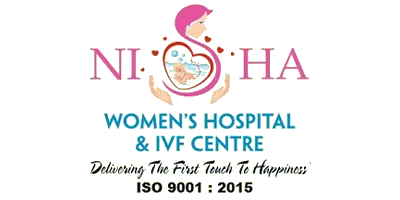Urinary tract infections (UTIs) are a common yet concerning complication for many women. Understanding the symptoms, preventive measures, and treatment options is crucial for new mothers. This ensures their postpartum recovery is as smooth and comfortable as possible. UTIs can range from mild discomfort to severe infection, impacting a mother’s ability to care for her newborn and herself.

Dr. Himali Maniar, a trusted gynecologist in South Bopal, Ahmedabad with over 14+ years of experience, specializes in fertility and reproductive health at Nisha Women’s Hospital. She is an expert in Urogynecology, Gynecology, and obstetrics treatments across women of all ages.
Dr. Patel’s approach combines advanced medical techniques with compassionate care. She ensures that each patient’s health needs are met with the highest standards of medical practice.
What is a postpartum UTI?


Why do I get a urine infection after C-section?
The risk of developing a UTI post C section can be attributed to several factors, such as:
Catheter Use: During a C-section, a catheter is often used to empty the bladder, which can introduce bacteria into the urinary tract.
Surgical Procedure: The surgical nature of a C-section increases the risk of infection in the pelvic area, including the urinary tract.

Hospital Environment: The increased exposure to hospital environments and medical instruments during a C-section can raise the risk of bacterial infections.
Hormonal Changes: Postpartum hormonal shifts can affect the urinary tract, making it more susceptible to infection.
Weak Immunity: Additionally, the body’s immune system is typically weaker post-surgery, increasing exposure to infections.
Symptoms of UTI after a C section

Recognizing the symptoms early can lead to prompt UTI postpartum treatment and less discomfort. Common symptoms include:
Burning sensation during urination
Frequent need to urinate, even when the bladder is not full
Cloudy, dark, bloody, or strange-smelling urine
Pelvic pain, especially in the center of the pelvis, around the area of the pubic bone
Fever or chills, indicating the infection may be reaching the kidneys
Increased fatigue
How to avoid urine infection during pregnancy?
Preventing a UTI during pregnancy and postpartum involves lifestyle adjustments and keen observation of one’s health. Strategies to help reduce the risk include:
Staying well-hydrated
Ensuring frequent and complete emptying of the bladder
Maintaining good personal hygiene
Avoiding irritants like scented soaps and sprays near the genital area
It’s also advisable to wear comfortable, loose-fitting clothing and cotton underwear to keep the area dry and well-ventilated, which discourages bacterial growth.
Think you might have a UTI after your C-section? Here’s what you can do.
How to treat UTI after a C-section?
Antibiotics: Complete the prescribed course of antibiotics.
Pain Relief: Consult your doctor before taking medications for pain and fever.
Increase Fluid Intake: Drink at least 8-10 glasses of water daily to help flush out bacteria.
Avoid Irritants: Stay away from bladder irritants such as caffeine, alcohol, spicy foods, and artificial sweeteners.
Proper Hygiene: Maintain personal hygiene, cleaning the genital area properly to avoid spreading bacteria.
Comfortable Clothing: Wear loose, cotton underwear and avoid tight-fitting clothes to keep the area dry and prevent bacterial growth.
Frequent Urination: Ensure regular urination to help eliminate bacteria from the urinary system.
Monitor Symptoms: Keep track of your symptoms.
Conclusion
UTI after C section, while common, requires prompt attention and care to prevent further complications. By understanding the symptoms and implementing preventive measures, new mothers can significantly improve their recovery process.
Dr. Himali Maniar and her team at Nisha Women’s Hospital in South Bopal, Ahmedabad are committed to providing top-notch care and guidance for women with postpartum UTI. With state-of-the-art facilities and a deep understanding of women’s health issues, Dr. Patel ensures that every patient receives the care they need to recover comfortably and effectively.

